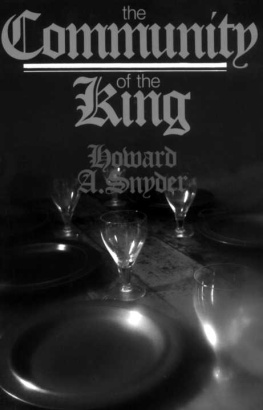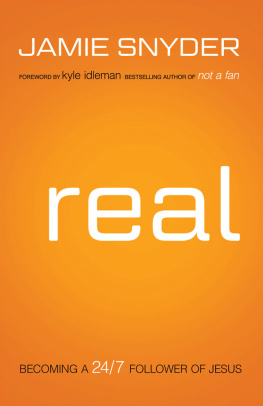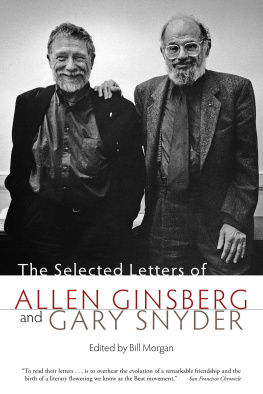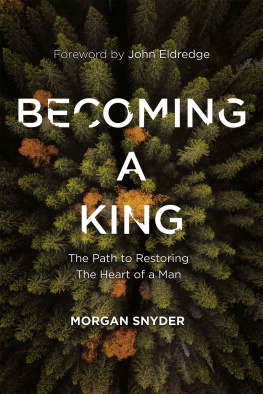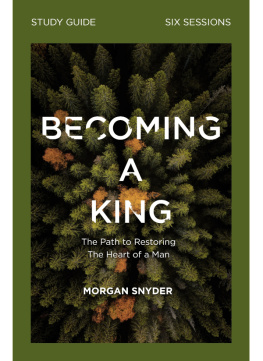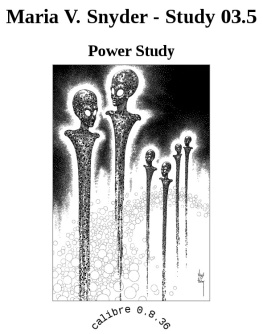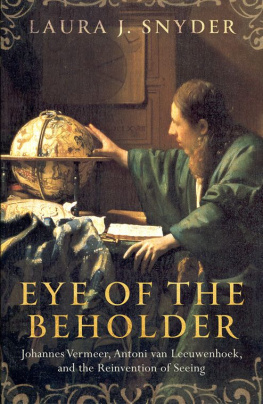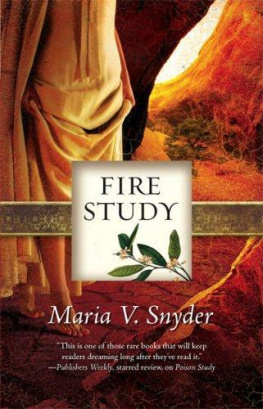Snyder - The community of the King
Here you can read online Snyder - The community of the King full text of the book (entire story) in english for free. Download pdf and epub, get meaning, cover and reviews about this ebook. City: Downers Grove, Ill., year: 2004, publisher: InterVarsity Press, genre: Religion. Description of the work, (preface) as well as reviews are available. Best literature library LitArk.com created for fans of good reading and offers a wide selection of genres:
Romance novel
Science fiction
Adventure
Detective
Science
History
Home and family
Prose
Art
Politics
Computer
Non-fiction
Religion
Business
Children
Humor
Choose a favorite category and find really read worthwhile books. Enjoy immersion in the world of imagination, feel the emotions of the characters or learn something new for yourself, make an fascinating discovery.
The community of the King: summary, description and annotation
We offer to read an annotation, description, summary or preface (depends on what the author of the book "The community of the King" wrote himself). If you haven't found the necessary information about the book — write in the comments, we will try to find it.
The community of the King — read online for free the complete book (whole text) full work
Below is the text of the book, divided by pages. System saving the place of the last page read, allows you to conveniently read the book "The community of the King" online for free, without having to search again every time where you left off. Put a bookmark, and you can go to the page where you finished reading at any time.
Font size:
Interval:
Bookmark:

Do not be afraid, little flock, for your Father delights to give you the kingdom. (Lk. 12:32)

Tto)ouarb 2.*npber
To Gilbert M. James and Charles W. Kingsley who in very different ways combine the evangelistic and prophetic dimensions of the Kingdom of God
This book is written out of frustration and hope. Frustration with so much that I have seen and experienced in the contemporary church which has led me to question seriously whether the church as we know it can ever be renewed. But also hope-hope because of the resurrection of Jesus Christ, and because of those faithful communities of believers down through history which have honestly followed the Risen One and have revealed the reality of the community of the King.
Though in some ways the present book is a sequel to The Problem of Wineskins, a book on church structure, the focus here is upon the relationship between the Church and the Kingdom of God. Only secondarily is the question of church structure examined. The book is essentially an expansion of a paper entitled "The Church As God's Agent of Evangelism" which was prepared for the 1974 International Congress on World Evangelization in Lausanne, Switzerland. Chapter nine comprises, in somewhat revised form, material which appeared as a chapter in The New Face of Evangelicalism, edited by C. Rene Padilla (InterVarsity Press, 1976).
In reading the New Testament I am impressed that early Christians and New Testament writers understood the Church as part of God's dramatic action in Jesus Christ of reconciling all things to himself, "things in heaven and on earth" (Eph. 1:10). The New Testament calls this reconciling work the Kingdom of God. This book
I have tried in these pages to set forth what Scripture teaches and what history illustrates about the Church. I have taken the biblical record very seriously as God's authoritative and reliable revelation to us. But in speaking of the Church and the Kingdom I have been little concerned with following specific theories, theologies or traditional viewpoints. No particular millennial system is espoused or presupposed in the book. There is a dynamic character to the Church and the Kingdom which no millennial or dispensational theory (whether modern or medieval) can comprehend. Obviously, this book cannot totally comprehend it either.
I am especially indebted to a number of people who read the manuscript and offered valuable criticisms. I have taken these criticisms into account in making final revisions. Especially I would like to thank John F. Alexander, Donald W. Dayton, G. Roger Schoenhals, Ralph D. Winter and my father, Edmund C. Snyder, for their criti- ;isms and suggestions, though perhaps none of them will agree totally with the final result.


Is it good news when the Church succeeds?
A theologian once wrote, "Speaking frankly, I do not really know whether the current prosperous condition of the church is more pleasing to God than its earlier humility. That earlier condition was perhaps better, but the present one is more agreeable!"1
Those were the words of Otto of Freising, apologist for the Holy Roman Empire in the twelfth century. Otto identified the Kingdom of God with the Church and saw the Kingdom coming to fruition in the political and ecclesiastical order of his day. Yet apparently he was attracted to the "weakness" and simplicity of the early church. The longing for a return to primitive Christianity eventually became a self-conscious impulse toward reform which led to what some have called "the renaissance of the twelfth century," and which reached its spiritual high point in Francis of Assisi and his humble band of followers.
The "success" of the Church at various points in history caused uneasiness which, joined with a new vision of its early days, prompted reassessment, reform, even renewal. The Protestant Reformation is the most well-known of several such times. Again in our day Jesus' followers might do well to ponder the contrast between the seeming prosperity of the present and the humility of the first-century Christian community.
Too little attention has been given to the doctrine of the Church in much modern thinking about evangelism, discipleship and social action. Donald Bloesch in The Evangelical Renaissance observes that "the doctrines of the church and the sacraments are conspicuously lacking in much contemporary evangelical writing."2 Yet proper thinking about the Church's ministries can only occur in the context of a clear, biblical understanding of the Church itself. It is encouraging, then, that in new ways the question of the Church is now beginning to come to the fore in orthodox Protestantism. One sign of the Spirit's moving in very recent years has been a new concern to discover the biblical picture of the Church. There is a growing awareness that many problems of contemporary Christianity trace directly to the view of the Church as essentially static, organizational and institutional.
In this book the Church is seen as the community of God's people-a people called to serve him and called to live together in true Christian community as a witness to the character and values of his Kingdom. The Church is the agent of God's mission on earth.3 But what is that mission? It is nothing other than bringing all things and, supremely, all people of the earth under the dominion and headship of Jesus Christ. If not all come willingly, nevertheless, every knee will bow and every tongue will confess that Jesus Christ is Lord (Phil. 2:1011).
But to say the Church is the agent of God's mission on earth is equivalent to saying the Church is the agent of the Kingdom of God. The Church is the messianic community-the community of those who recognize the true Messiah, already confess him as Lord and proclaim his good news to the ends of the earth.
So the Church is the agent of the Kingdom of God. To speak of either the evangelistic or prophetic role of the Church without relating these to the Church's kingdom mission is to lose the biblical perspective and develop a truncated vision of the Church's calling. Biblically, neither evangelism nor social action make full sense divorced from the fact of the Christian community as the visible, earthly expression of the Kingdom of God.
Font size:
Interval:
Bookmark:
Similar books «The community of the King»
Look at similar books to The community of the King. We have selected literature similar in name and meaning in the hope of providing readers with more options to find new, interesting, not yet read works.
Discussion, reviews of the book The community of the King and just readers' own opinions. Leave your comments, write what you think about the work, its meaning or the main characters. Specify what exactly you liked and what you didn't like, and why you think so.

